- Home
- China Miéville
Embassytown Page 2
Embassytown Read online
Page 2
They were not the only exoterres I’d seen. There were exot inhabitants of Embassytown—a few Kedis, a handful of Shur’asi and others—but with them, while there was strangeness of course there was never that abstraction, that sheer remove one felt from Hosts. One Shur’asi shopkeeper would even joke with us, his accent bizarre but his humour clear.
Later I understood that those immigrants were exclusively from species with which we shared conceptual models, according to various measures. Hosts, the indigenes, in whose city we had been graciously allowed to build Embassytown, were cool, incomprehensible presences. Powers like subaltern gods, who sometimes watched us as if we were interesting, curious dust; and who provided our biorigging, and to which the Ambassadors alone spoke. We were reminded often that we owed them courtesy. Pass them in the street and we would show the required respect, then run on giggling. Without my friends, though, I couldn’t camouflage my fear with silliness.
“It’s asking if the boy’ll be alright,” the man said. He rubbed his mouth. “Colloquially, something like, will he run later or will he cool? It wants to help. It has helped. It probably thinks me rude.” He sighed. “Or mentally ill. Because I won’t answer it. It can see I’m diminished. If your friend doesn’t die it’ll be because it brought him here.
“The Hosts found him.” I could tell the man was trying to speak gently to me. He seemed unpractised. “They can come here but they know we can’t leave. They know more or less what we need.” He pointed at the Host’s pet. “They had their engines breathe oxygen into him. Yohn’ll maybe be fine. The constables’ll come soon. Your name’s Avice. Where do you live, Avice?” I told him. “Do you know my name?”
I’d heard it of course. I was unsure of the etiquette of speaking it to him. “Bren,” I said.
“Bren. That isn’t right. You understand that? You can’t say my name. You might spell it, but you can’t say it. But then I can’t say my name either. Bren is as good as any of us can do. It . . .” He looked at the Host, which nodded gravely. “Now, it can say my name. But that’s no good: it and I can’t speak anymore.”
“Why did they bring him to you, sir?” His house was close to the interstice, to where Yohn had fallen, but hardly adjacent.
“They know me. They brought your friend to me because though as I say they know me to be lessened in some way they also recognise me. They speak and they must hope I’ll answer them. I’m . . . I must be . . . very confusing to them.” He smiled. “It’s all foolishness, I know. Believe me I do know that. Do you know what I am, Avice?”
I nodded. Now, of course, I know that I had no idea what he was, and I’m not sure he did either.
The constables at last arrived with a medical team, and Bren’s room became an impromptu surgery. Yohn was intubated, drugged, monitored. Bren pulled me gently out of the experts’ way. We stood to one side, I, Bren and the Host, its animal tasting my feet with a tongue like a feather. A constable bowed to the Host, which moved its face in response.
“Thanks for helping your friend, Avice. Perhaps he’ll be fine. And I’ll see you soon, I’m sure. ‘Turnaround, incline, piggy, sunshine’?” Bren smiled.
While a constable ushered me out at last, Bren stood with the Host. It had wrapped him in a companionable limb. He did not pull away. They stood in polite silence, both looking at me.
AT THE NURSERY they fussed over me. Even assured by the officer that I’d done nothing wrong, the staffparents seemed a little suspicious about what I’d got myself into. But they were decent, because they loved us. They could see I was in shock. How could I forget Yohn’s shaking figure? More, how could I forget being quite so close up to the Host, the sounds of its voice? I was haunted by what had been, without question, its precise attention on me.
“So somebody had drinks with Staff, today, did they?” my shiftfather teased as he put me to bed. It was Dad Shemmi, my favourite.
Later in the out I took mild interest in all the varieties of ways to be a family. I don’t remember any particular jealousy I, or most other Embassytown children, felt at those of our shiftsiblings whose blood parents at times visited them: it wasn’t in particular our norm there. I never looked into it, but I wondered, in later life, whether our shift-and-nursery system continued social practices of Embassytown’s founders (Bremen has for a long time been relaxed about including a variety of mores in its sphere of governance), or if it had been thrown up a little later. Perhaps in vague social-evolutionary sympathy with the institutional raising of our Ambassadors.
No matter. You heard terrible stories from the nurseries from time to time, yes, but then in the out I heard bad stories too, about people raised by those who’d birthed them. On Embassytown we all had our favourites and those we were more scared of, those whose on-duty weeks we relished and those not, those we’d go to for comfort, those for advice, those we’d steal from, and so on; but our shiftparents were good people. Shemmi I loved the most.
“Why do the people not like Mr. Bren living there?”
“Not Mr. Bren, darling, just Bren. They, some of them, don’t think it’s right for him to live like that, in town.”
“What do you think?”
He paused. “I think they’re right. I think it’s . . . unseemly. There are places for the cleaved.” I’d heard that word before, from Dad Berdan. “Retreats just for them, so . . . It’s ugly to see, Avvy. He’s a funny one. Grumpy old sod. Poor man. But it isn’t good to see. That kind of wound.”
It’s disgusting, some of my friends later said. They’d learnt this attitude from less liberal shiftparents. Nasty old cripple should go to the sanatorium. Leave him alone, I’d say. He saved Yohn.
Yohn recovered. His experience didn’t stop our game. I went a little farther, a little farther over weeks, but I never reached Yohn’s marks. The fruits of his dangerous experiment, a last mark, was metres beyond any of his others, the initial letter of his name in a terrible hand. “I fainted there,” he would tell us. “I nearly died.” After his accident he was never able to go nearly so far again. He remained the second-best because of his history, but I could beat him now.
“How do I spell Bren’s name?” I asked Dad Shemmi, and he showed me.
“Bren,” he said, running his finger along the word: seven letters; four he sounded; three he could not.
0.2
WHEN I WAS seven years old I left Embassytown. Kissed my shiftparents and siblings goodbye. I returned when I was eleven: married; not rich but with savings and a bit of property; knowing a little of how to fight, how to obey orders, how and when to disobey them; and how to immerse.
I’d become fair-to-good at several things, though I excelled, I thought, at only one. It wasn’t violence. That’s an everyday risk of port life, and over my time away I’d lost only a few more fights than I’d won. I look stronger than I am, I was always quickish, and like many middling scrappers I’d become good at insinuating more skill than I had. I could avoid confrontations without obvious cowardice.
I was bad at money but had amassed some. I couldn’t claim that marriage was my real skill, but I was better at it than many. I’d had two previous husbands and a wife. I’d lost them to changes of predilection, without rancour—as I say, I wasn’t bad at marriage. Scile was my fourth spouse.
As an immerser I progressed to the ranks I aspired to—those that granted me a certain cachet and income while keeping me from fundamental responsibilities. This is what I excelled at: the life-technique of aggregated skill, luck, laziness and chutzpah that we call floaking.
Immersers, I think, created the term. Everyone has some floaker in them. There’s a devil on your shoulder. Not everyone crewing aspires to master the technique—there are those who want to captain or explore—but for most, floaking is indispensable. Some people think it mere indolence but it’s a more active and nuanced technique than that. Floakers aren’t afraid of effort: many crew work very hard to get shipboard in the first place. I did.
When I think of my age I think in ye
ars, still, even after all this time and travel. It’s bad form, and ship-life should have cured me of it. “Years?” one of my first officers shouted at me. “I don’t give two shits about whatever your pisspot home’s sidereal shenanigans are, I want to know how old you are.”
Answer in hours. Answer in subjective hours: no officer cares if you’ve slowed any compared to your pisspot home. No one cares which of the countless year-lengths you grew up with. So, when I was about 170 kilohours old I left Embassytown. I returned when I was 266Kh, married, with savings, having learnt a few things.
I was about 158 kilohours old when I learnt that I could immerse. I knew then what I’d do, and I did it.
I answer in subjective hours; I have to bear objective hours vaguely in mind; I think in the years of my birth-home, which was itself dictated to by the schedules of another place. None of this has anything to do with Terre. I once met a junior immerser from some self-hating backwater who reckoned in what he called “earth-years”, the risible fool. I asked him if he’d been to the place by the calendar of which he lived. Of course he’d no more idea of where it was than I.
AS I’VE GROWN OLDER I’ve become conscious of how unsurprising I am. What happened to me didn’t happen to many Embassytowners—that’s surely the point—but the story of its happening is classic. I was born in a place that I thought for thousands of hours was enough of a universe. Then I knew quite suddenly that it was not, but that I wouldn’t be able to leave; and then I could leave. You hear the same all over the place, and not only among the human.
Here’s another memory. We used to play at immersing, running up behind each other in a little I’m invisible crouch, then shouting “Emerge!” and grabbing. We knew very little about immersion, and that play-acting was, I would come to learn, not much more inaccurate than most adult descriptions of the immer.
Irregularly throughout my youth, scheduled between incoming ships, miabs would arrive. Uncrewed little boxes full of oddments, steered by ’ware. Plenty were lost en route: became hazards forever, I later learned, in variously strange corroded forms, in the immer they’d been built to travel. But most reached us. As I got older my excitement at those arrivals became coloured by frustration, envy of them, until I realised I would, in fact, get out into the out. They became hints, then: little whispers.
When I was four and a half years old I saw a train hauling a just-touched-down miab through Embassytown. Like most children and many adults, I always wanted to witness their arrival. There was a little gang of us there from the nursery, watched and lightly corralled by Mum Quiller, I think it was, and we ourselves roughly looked out for our much younger shiftfriends. We were able to lean up over the railings mostly uninterrupted and chatter at each other and the arrival.
As always the miab was laid on a colossal flatbed, and the biorigged locomotor that hauled it through the wide cut of Embassytown’s industrial rails was heaving, putting out temporary muscular legs to strain along with its engine. The miab on its back was bigger than my nursery’s hall. A very real container, snub-bullet-shaped, moving through light rain. Its surface sheened with saft that evanesced out from its crystal shielding in threads that degraded to nothing. The authorities were irresponsible, I know now, not to have waited for that immer-stained surface to calm. This wasn’t the first miab they’d brought in still damp from its journey.
I saw a building dragged. That’s what it looked like. A big train wheezing with effort, its enginarii cajoling it through a gash. The enormous room was tugged uphill towards the Ambassadors’ castle, surrounded by Embassytowners, cheering and waving ribbons. It had an escort of centaurs, men and women perched at the front of quadruped biorigged conveyances. Some of the town’s few exots stood by their Terre friends: Kedis frills rose and flushed colours, Shur’asi and Pannegetch made their sounds. There were automa in the crowd: some staggering boxes, some with persuasive-enough Turingware that they seemed enthusiastic participants.
Inside the unmanned vessel would be cargo, presents to us from Dagostin and perhaps beyond, import things we coveted, bookware and books, newsware, rare foods, tech, letters. The craft itself would be cannibalised, too. I’d sent things out in return myself, yearly, when our own much smaller miabs were dispatched. They contained hardy goods and the paraphernalia of official duties (all carefully copied before dispatch—no one would assume any miab would reach its destination), but a little space was retained for children to correspond with pen-pal schools in the out.
“Miab, miab, message in a bottle!” Mum Berwick would sing as she gathered our letters up. Dear Class 7, Bowchurch High, Charo City, Bremen, Dagostin, I remember writing. I wish that I could come with my letter to visit you. Brief catch-up epistolary flurries every rare often.
The miab passed by one of the waterways we called rivers, which are small canals, under Stilt Bridge. I remember that there were Hosts there, with a delegation of Embassy Staff, looking down through the bridge’s coloured-glass portals, flanked by our security on biorigged mount-machines.
It was out of my sight when the stowaway emerged from the miab, but I’ve seen recordings. The tracks were overlooked by tenements on the east side and the animal gardens on the west when cracking first became audible. Had it been a kilometre farther, into the rookeries and under the bridgepaths in the Embassy’s close vicinity, it would have gone much worse.
You can see from the newsloads that some in the crowd knew what was happening. There were shouts as the noise grew, people trying to warn people. Some of those who understood simply ran. Us kids mostly just stood I think, though Mum Quiller would have done her best to get us out of there. There’s the sound of the miab’s ceramic case straining in anti-Newtonian ways. People are peering over the railings to see; more and more are getting out of there.
The miab splits, sending blades of hull matter viciously airborne. Something from the immer comes out.
Taxonomy is imprecise. Most experts agree that what emerged on that day was a minor manifestation, one I’d later learn to call a stichling. It was an insinuation at first, composing itself of angles and shadows. It accreted itself from its surrounds, manifesting in the transient. The bricks, plastone and concrete of buildings, the energy of the cages and the flesh of the captive animals from the gardens spilled toward and into the swimming thing, against physics. They substanced it. Houses were unroofed as their slates dripped sideways into a presence growing every moment more physical, more suited to this realness.
IT WAS PUT DOWN quickly. They hammered it with sometimes-guns, that violently assert the manchmal, this stuff, our everyday, against the always of the immer. It was banished or dispatched after minutes of shrieking.
Thankfully no Hosts were harmed. But the emergence left scores of others dead. Some were killed in the explosion; some were lessened, had partially poured away. From then on, when retrieving miabs, Staff obeyed the protocols of care that they had been letting slip. Our trids showed repeated debates, fury and angst. Whoever it was in Staff who was sacked in disgrace was a scapegoat for the system. A young, dashingly ill-disciplined Ambassador DalTon more or less asserted that on cam, in anger, which I remember the parents talking about. Dad Noor even told me the disaster would be the end of the pomp of arrival. He was wrong about this, of course. He was always a lugubrious man.
Of course my friends and I were obsessed with the tragedy. Within a very short time we were playing it as a game, making immer-bubbling and cracking-shellcase noises, firing finger-guns and sticks at those of us temporarily monsters. I conceived of the stichling as some sort of slayed dragon.
THERE’S A STORY told, sort of a traditional view, that immersers never remember their childhoods. That’s obviously not true. People say it as a way to stress the strangeness of the immer; the implication being that there’s something in that foundational altreality that plays buggery with human minds. (Which it can do, certainly, but not like that.)
It’s not true, but it is the case that I, and most of the immersers I’ve k
nown, have casual, or vague, or discombobulated memories of when we were small. I don’t think it’s a mystery: I think it’s a corollary of our mindsets, the way we think, those of us who want to go into the out.
I recall episodes very well, but episodes, not a timeline. The most relevant times, the definitional ones. The rest of it’s disorganised in my head, and mostly I don’t mind. Here: one other time in my childhood, I was in the company of Hosts. One morning in the third monthling of July I was called to a meeting.
It was Dad Shemmi they sent to fetch me. He squeezed my shoulder as he pointed me in to one of the nursery’s scruffy paperwork-and-datspace-filled offices. It was Mum Solfer’s room, and I’d not been in it before. Mostly Terretech, though a boxy biorigged bin was quietly eating her rubbish. Solfer was older, kind, distracted, knew me by name, which she did not all my shiftsiblings. She beckoned me, obviously uneasy. She stood, glanced around as if for a sofa, which the room was without, sat again. Behind her desk with her—not unamusing, in retrospect, it was smallish and too cramped for them—was Dad Renshaw, a relatively new, thoughtful and teacherly shiftfather, who smiled at me; and to my astonishment the third person waiting for me was Bren.
It had been almost a year, nearly 25Kh, since Yohn’s accident, since I or any of us had returned to that house. I’d grown, of course, and more than many of my siblings, but as soon as I entered, Bren smiled recognition. He looked unchanged. They might have been the same clothes he had on as before.
Mum shifted. Though she sat with the others on one side of the desk while I, on the stiffly adult chair to which she directed me, was on the other, the way she moved her eyebrows at me I felt suddenly that she and I were together in whatever this oddness was.
I’d be paid for this, she said (an uploading of no little size, it turned out); it was quite safe; it was an honour. She didn’t make very much sense. Dad Renshaw gently interrupted her. He turned to Bren and motioned for him to speak.

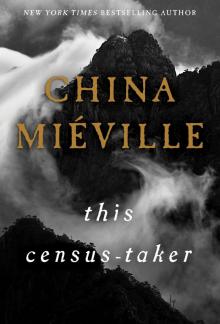 This Census-Taker
This Census-Taker Jack
Jack October: The Story of the Russian Revolution
October: The Story of the Russian Revolution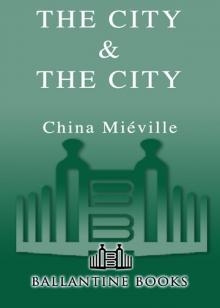 The City & the City
The City & the City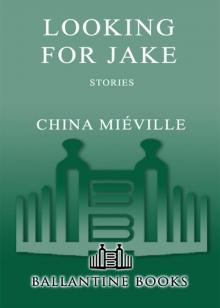 Looking for Jake: Stories
Looking for Jake: Stories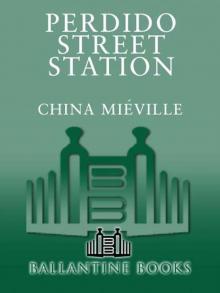 Perdido Street Station
Perdido Street Station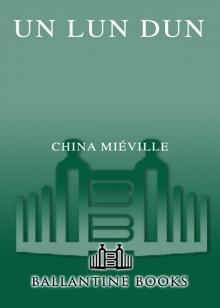 Un Lun Dun
Un Lun Dun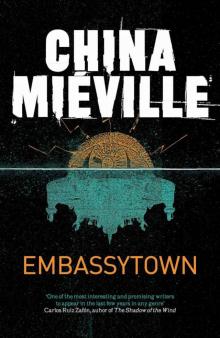 Embassytown
Embassytown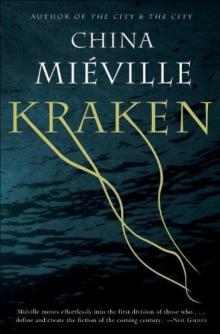 Kraken
Kraken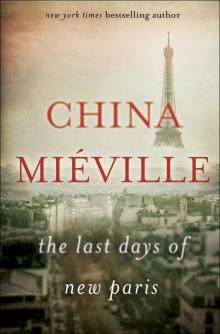 The Last Days of New Paris
The Last Days of New Paris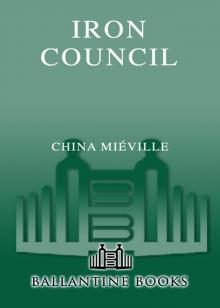 Iron Council
Iron Council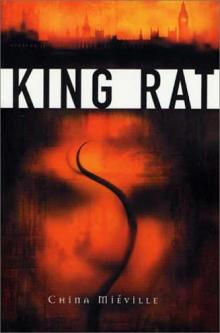 King Rat
King Rat Three Moments of an Explosion
Three Moments of an Explosion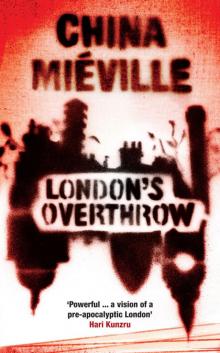 London's Overthrow
London's Overthrow October
October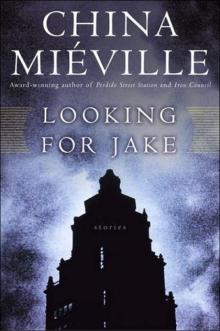 Jack (new crobuzon)
Jack (new crobuzon)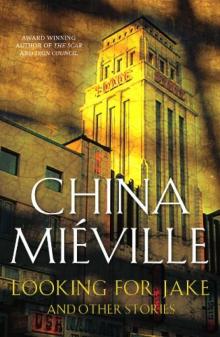 Looking for Jake and Other Stories
Looking for Jake and Other Stories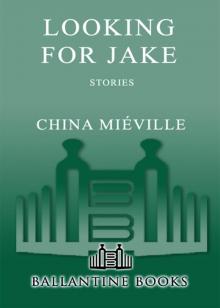 Looking for Jake
Looking for Jake